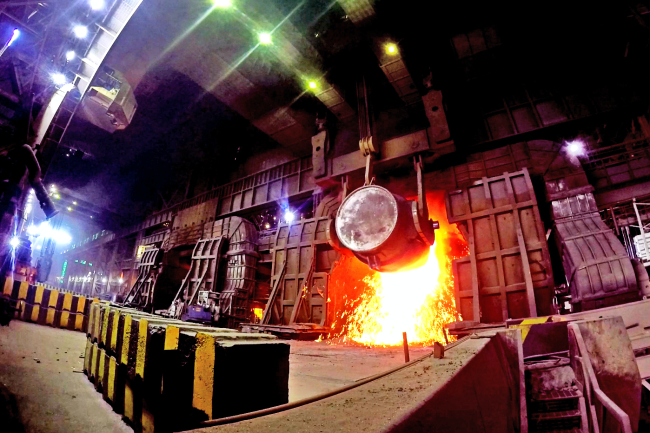3 minute read - 15th September 2023
£1.25bn Tata Steel joint investment confirmed by gov’t but job losses expected
The UK government has agreed a joint investment package with Tata Steel in a bid to secure a sustainable future for steelmaking in Port Talbot, modernise production of greener steel, and protect skilled jobs. This is subject to consultation and regulatory approvals.
Tata Steel is expected to invest a total of £1.25bn, including a UK government grant worth up to £500m, in a new electric arc furnace for greener steel production at Port Talbot, which is currently the UK’s largest single carbon emitter. This would replace its existing coal-powered blast furnaces, which are nearing the end of their effective life, and reduce the UK’s entire carbon emissions by around 1.5% as a result. The government grant funding is one of the largest government support packages in history.
But the jobs of thousands of steelworkers at Port Talbot plant are now at risk, with a range of measures set to be put in place to support affected employees. Tata Steel UK employs over 8,000 people, including at Port Talbot, which the government says would otherwise be under serious threat without substantial investment to guarantee its future. The UK government said its intervention has the potential to safeguard over 5,000 jobs across the UK.

Tata Steel is to invest £1.25bn at Port Talbot, including a government grant of up to £500m, but thousands of jobs are expected to be lost / Picture: Tata Steel
Following the announcement, Tata Steel UK will inform and consult with staff and unions on their proposals. The UK government added it would also ensure a broad range of support for any staff who are affected by the transition, working with the Welsh government and Tata Steel to establish a dedicated transition board to support both affected employees and the local economy, with up to £100m funding.
An electric arc furnace uses an electric current to melt scrap steel or iron and produce steel, whereas blast furnaces use coke, a carbon-intensive fuel made from coal to produce steel. The transition to sustainable steelmaking at Port Talbot is also expected to reduce the UK’s entire business and industry carbon emissions by 7%, Wales’s overall emissions by 22% and the Port Talbot site’s emissions by 85%.
Kemi Badenoch, business and trade secretary, said: “The UK government is backing our steel sector, and this proposal will secure a sustainable future for Welsh steel and is expected to save thousands of jobs in the long term. This is an historic package of support from the UK government and will not only protect skilled jobs in Wales but also grow the UK economy, boost growth and help ensure a successful UK steel industry.”
David TC Davies, Welsh secretary, added: “Steelmaking remains a vital part of the Welsh economy and this huge support package from the UK government ensures that the industry now has a bright future to match its long and proud history in South Wales. We are investing in our steel industry as it makes the necessary transition to greener methods of production and are also putting support in place for the local workers affected by the changes.”